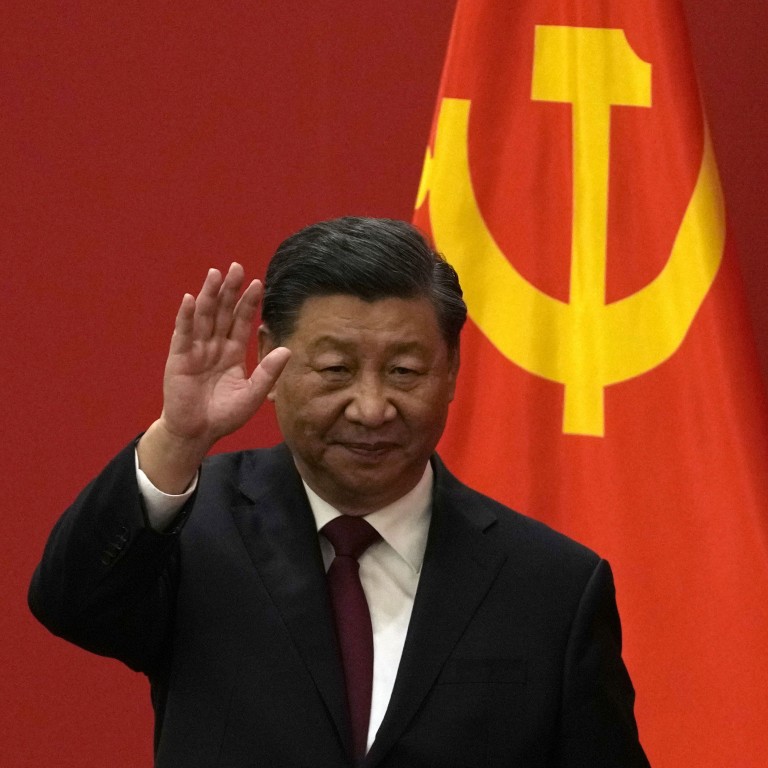
Chinese leader Xi Jinping urges country to seize opportunities in artificial intelligence to modernise industry
- On Friday, Xi said China should seize opportunities in AI to build a ‘holistic, advanced, and harm-free’ modern industrial system
- At an April 28 Politburo meeting, Chinese leaders concluded that China must ‘pay attention to the development of artificial general intelligence’
Chinese President Xi Jinping has stressed the importance of developing China’s ability in artificial intelligence (AI) for the second time in less than a fortnight, as the Sino-US tech race in AI and semiconductors ratchets up.
During a key economic meeting on Friday, Xi said China should leverage its abilities in AI to help modernisation of the country’s industrial system, state news Xinhua reported.
Xi said China should seize opportunities presented by new scientific and technological breakthroughs, such as AI, to build a “holistic, advanced, and harm-free” modern industrial system. The remarks were made during a meeting of the Central Commission for Financial and Economic Affairs.
It was the second time in recent weeks that Xi has emphasised the development of AI. His comments come amid ongoing US moves to slow China’s development of AI by restricting China-bound exports of advanced semiconductors such as CPUs and GPUs, which are vital for training sophisticated AI models.
AI is making scams harder to detect, but cyber firms are fighting back
“Accelerating the construction of a modern industrial system bolstered by the real economy is crucial for us to gain strategic initiative in future development and international competition,” Xi said during the meeting, which was attended by other top level Chinese leaders.
The US government is also paying attention to AI. President Joe Biden met with CEOs of top artificial intelligence companies including Microsoft and Alphabet’s Google on Thursday, making it clear to them they must ensure their products are safe before being publicly deployed.
It was the first time Beijing has included a reference to AGI in a Politburo statement, reflecting the country’s mixed signals to date on where it stands on ChatGPT-style services. It appears that while advancement of AI is desired, there are also concerns about the consequences of such actions.
ChatGPT, an AI chatbot developed by Microsoft-backed OpenAI, has become the biggest AI success of the past decade, with many hailing it as AI’s “iPhone moment”. Its ability to understand human languages and perform many white-collar tasks has stoked fears that the human workforce could soon lose its competition edge to AI. In China, ChatGPT-style services have become a buzzword among entrepreneurs, start-ups and China Big Tech firms.
China to embrace AI advances but also control risks as ChatGPT wave spreads
Search engine giant Baidu, e-commerce behemoth Alibaba Group Holding, video gaming company NetEase and AI firm SenseTime have all launched their own ChatGPT-like services. Alibaba owns the Post.
Despite the frenzy, Chinese AI development faces hurdles due to the country’s stringent control on free speech, as well as the US ban on China buying advanced chips.
The Cyberspace Administration of China, the country’s internet watchdog, drafted new rules in April requiring generative AI developers to submit their products to a security assessment before being made available to the public. This is designed to prevent content from contravening China’s laws that prohibit discussions of regime subversion, violence or pornography.

